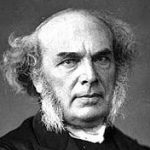Life Impact: This lesson will help you take steps to repair the breach in your life between worship and witness.
Proclaim the Good News: Romans 15:14-21.
[14] And concerning you, my brethren, I myself also am convinced that you yourselves are full of goodness, filled with all knowledge and able also to admonish one another. [15] But I have written very boldly to you on some points so as to remind you again, because of the grace that was given me from God, [16] to be a minister of Christ Jesus to the Gentiles, ministering as a priest the gospel of God, so that my offering of the Gentiles may become acceptable, sanctified by the Holy Spirit. [17] Therefore in Christ Jesus I have found reason for boasting in things pertaining to God. [18] For I will not presume to speak of anything except what Christ has accomplished through me, resulting in the obedience of the Gentiles by word and deed, [19] in the power of signs and wonders, in the power of the Spirit; so that from Jerusalem and round about as far as Illyricum I have fully preached the gospel of Christ. [20] And thus I aspired to preach the gospel, not where Christ was already named, so that I would not build on another man’s foundation; [21] but as it is written, "THEY WHO HAD NO NEWS OF HIM SHALL SEE, AND THEY WHO HAVE NOT HEARD SHALL UNDERSTAND." [NASU]
[14-15] Paul begins by expressing his confidence in his Roman readers. He is simply assuring them that he knows and appreciates their qualities: their kindness, their extensive Christian knowledge and their proven ability to teach and admonish one another. If then they are such fine and gifted Christians, why has Paul thought it necessary to write to them as he has done? He supplies two reasons. First, I have written to you quite boldly on some points, as if to remind you of them again [15a]. The apostles attached great importance to their reminding ministry. They kept reminding the churches of the original message and calling them back to it. Paul’s second reason for having written had to do with his unique ministry as the apostle to the Gentiles, to which he has already referred three times [1:5;11:13;12:3]. I have written because of the grace God gave me to be a minister of Christ Jesus to the Gentiles [15b-16a].
[16-17] For the next seven verses Paul elaborates the nature of his ministry, drawing his readers’ attention to three salient features of it. First, Paul’s ministry was a priestly ministry. Paul uses five terms that, directly or indirectly, all have priestly and sacrificial associations: minister, priestly duty, offering, acceptable to God and sanctified. So what is Paul’s priestly ministry, and what sacrifice does he have to offer? The answer clearly has to do with the gospel and the Gentiles. Paul regards his missionary work as a priestly ministry because he is able to offer his Gentile converts as a living sacrifice to God. This was in fulfillment of Isaiah’s prophecy [66:20] that Diaspora Jews (of whom Paul was one) would proclaim God’s glory in distant lands and bring people to Jerusalem from all the nations as an offering to the Lord. All evangelists are priests, because they offer their converts to God. Indeed, it is this truth more than any other which effectively united the church’s two major roles of worship and witness. It is when we worship God, glorying in His holy name, that we are driven out to proclaim His name to the world. And when through our witness people are brought to Christ, we then offer them to God. Further, they themselves join in His worship, until they too go out to witness. Thus worship leads to witness, and witness to worship. It is a perpetual cycle.
[18-19a] Second, Paul’s ministry was a powerful ministry This is a very valuable statement of Paul’s own understanding of his ministry. The repetition of the word power in verse 19 justifies our calling it a powerful ministry. He alludes to at least five features of it. (1) Paul describes the objective of his ministry as being to lead the Gentiles to obey God. His emphasis is on obedience, presumably because it is the indispensable consequence of saving faith, and is a vital ingredient of Christian discipleship. (2) Paul refuses to recount his own exploits. All he will dare to talk about, he says, is what Christ has accomplished through me. (3) What Christ has accomplished has been by what I have said and done, literally by word and deed. This combination of words and works, the verbal and the visual, is a recognition that human beings often learn more through their eyes than through their ears. Words explain works, but works dramatize words. (4) Christ’s ministry through Paul was by the power of signs and miracles. This expression brings together the three commonest biblical terms for the supernatural. Signs indicates their significance (especially in demonstrating the arrival of God’s kingdom), powers their character (exhibiting God’s power over nature) and wonders their effect (evoking people’s amazement). Their chief purpose was to authenticate the unique ministry of the apostles. (5) Paul’s ministry was also through the power of the Spirit. It is He who takes our feeble human words and confirms them with His divine power in the minds, hearts, consciences and wills of the hearers. Every conversion is a power encounter, in which the Spirit through the gospel rescues and regenerates sinners.
[19b-21] Third, Paul’s ministry was a pioneer ministry. I have fully preached the gospel of Christ [19b]. This is Paul’s succinct and modest summary of ten years of strenuous apostolic labor, including his three heroic missionary journeys. Paul’s strategy was to evangelize the populous and influential cities, and plant churches there, and then leave to others the radiation of the gospel into the surrounding villages. Paul goes on to explain the consistent pioneer policy which lay behind it. It has always been his ambition to preach the gospel where Christ was not known. His own calling and gift as apostle to the Gentiles was to pioneer the evangelization of the Gentile world, and then leave to others, especially to local, residential elders, the pastoral care of the churches.
Pray for Success: Romans 15:30-33.
[30] Now I urge you, brethren, by our Lord Jesus Christ and by the love of the Spirit, to strive together with me in your prayers to God for me, [31] that I may be rescued from those who are disobedient in Judea, and that my service for Jerusalem may prove acceptable to the saints;
[32] so that I may come to you in joy by the will of God and find refreshing rest in your company. [33] Now the God of peace be with you all. Amen. [NASU]
[30-31] Paul requests prayer for his visits. He appeals to them by our Lord Jesus Christ (our common Lord) and by the love of the Spirit (our common love being the Holy Spirit’s fruit). He goes on to refer to prayer as a struggle. It may be that Paul is simply representing prayer as an activity demanding great exertion, a struggle in fact with ourselves, in which we seek to align ourselves with God’s will. For what, then, does Paul ask their prayers? It concerns his visits to
[32-33] Paul now requests prayer also for his visit to
Praise God: Romans 16:25-27.
[25] Now to Him who is able to establish you according to my gospel and the preaching of Jesus Christ, according to the revelation of the mystery which has been kept secret for long ages past, [26] but now is manifested, and by the Scriptures of the prophets, according to the commandment of the eternal God, has been made known to all the nations, leading to obedience of faith; [27] to the only wise God, through Jesus Christ, be the glory forever. Amen.
Paul’s doxology is an eloquent and appropriate conclusion to his letter, for he takes up its central themes, summarizes them and relates them to one another. It consists of four parts which focus respectively on the power of God, the gospel of Christ, the evangelization of the nations and the praise of God’s wisdom. (1) Paul writes of the power of God [25a]. It can hardly be an accident that Romans begins and ends with a reference to the power of God through the gospel. If the gospel is God’s power to save, it is also God’s power to establish which is almost a technical term for nurturing new converts and strengthening young churches. Paul uses the verb in his letters in relation to making Christians firm, strong and stable, whether in their faith (against error), in their holiness (against temptation) or in their courage (against persecution). So the vision conjured up by the doxology’s opening words is of God’s ability to establish the multi-ethnic church in Rome and to strengthen its members in truth, holiness and unity.
(2) Secondly, Paul writes of the gospel of Christ [25b]. The Greek sentence has three coordinate clauses, namely according to my gospel, (according to) the preaching of Jesus Christ, and according to the revelation of the mystery. But the first two are almost identical, since Paul’s gospel was essentially a proclamation of Christ. What Paul is affirming is that God’s power to establish the church is part of his gospel, of his proclamation. This reminds us of the first three verses of his letter, in which he described himself as set apart for the gospel of God regarding His Son. Now he refers to the gospel of God as my gospel because it had been revealed and entrusted to him by God, and the gospel regarding His Son he calls the proclamation of Jesus Christ. The third coordinate clause emphasizes the fact that his gospel is revealed truth. What is included in the mystery Paul does not here explain. But he does elsewhere. God’s secret, hitherto concealed but now revealed, is essentially Jesus Christ Himself in His fullness, and in particular Christ for and in the Gentiles, so that Gentiles now have an equal share with Israel in God’s promise. Thus the mystery begins, continues and ends with Christ.
(3) Thirdly, Paul writes of the evangelization of the nations [26]. Paul is stating three truths about the mystery, which are summed up by the verbs kept secret, manifested and made known. It is not just that the mystery was long concealed, but has now been revealed, namely through the life, death, resurrection and exaltation of Jesus. The third fact is that this good news must be, and is already being, made known throughout the world. Consider now four significant features of the universal making known of the gospel mystery, which are strongly reminiscent of the letter’s opening paragraph [1:1-5]. (a) First, the mystery is being made known through the prophetic writings [26a], which must mean Old Testament Scripture. But how can God be making known His mystery through the Old Testament now, when it has been in existence for centuries? The answer seems to be that, following the saving events of Christ, God has given His people a new Christological understanding of the Old Testament as bearing witness to Christ. In consequence, it is through the apostolic declaration that ‘the Christ is Jesus’ that the gospel is spreading. (b) Second, the clause according to the commandment of the eternal God [26b] must refer to the universal commission to preach the gospel. (c) Third, the clause leading to obedience of faith [26c] comes next in the Greek text. It is identical with 1:5. The proper response to the gospel is faith, as Paul has stressed throughout his letter, but it is a faith which itself is obedient and which issues in a life of obedience. (d) Fourth, the contemporary making known of God’s mystery is for all nations, so that they will believe and obey. So this fourfold scheme of the making known of the gospel through Scripture, by God’s command, unto obedience of faith, for all the nations, exactly corresponds to the letter’s opening, which refers to the gospel as being, among other things, according to the Scriptures, through the grace and apostleship given to Paul and others, unto obedience of faith, and for all the nations.
(4) Finally, Paul concludes in praise of God’s wisdom: to the only wise God, through Jesus Christ, be the glory forever. Amen. [27]. God’s wisdom is seen in Christ Himself, in whom are hidden all the treasures of wisdom and knowledge, above all in His cross which, though foolish to human beings, is the wisdom of God; in God’s decision to save the world not through its own wisdom but through the folly of the gospel; in the extraordinary phenomenon of the emerging multiracial, multicultural church; and in His purpose ultimately to unite everything under Christ. God’s redeemed people will spend eternity ascribing to him praise and glory and wisdom and thanks and honor and power and strength [Rev 7:12]. That is, they will worship Him for His power and wisdom displayed in salvation. It is fair then to say that the major themes of Paul’s letter are encapsulated in the doxology: the power of God to save and to establish; the gospel and the mystery, once hidden and now revealed, which are Christ crucified and risen; the Christ-centered witness of Old Testament Scripture; the commission of God to make the good news universally known; the summons to all the nations to respond with the obedience of faith and the saving wisdom of God, to whom all glory is due for ever.
Questions for Discussion:
1. How does Paul see his own mission [15:14-21]? Why is being reminded of the blessings of grace important for our spiritual well-being? Why does true worship always lead to witness?
2. What does Paul teach us about prayer in 15:30-33?
3. Memorize Paul’s doxology this week. Meditate on the four parts of the doxology and how you can make them a central part of your Christian life.
References:
The Epistle to the Romans, Leon Morris, Eerdmans.
Romans, John Stott, Intervarsity.

















